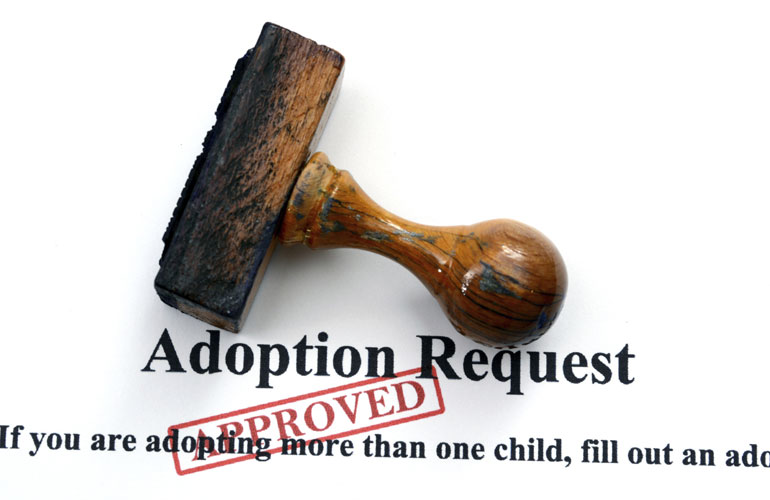Readoption is the legal process of adopting a child again in the United States, after the child has already been lawfully adopted in another country. If you adopt internationally, the decision to readopt is an important consideration that should be addressed soon after returning home with your child.
The Hague Adoption Convention includes a provision (Article 23) that recognizes adoptions between Hague countries as full and final. Additionally, the U.S. has a federal law that allows for the U.S. Secretary of State to issue a certificate that can be attached to the foreign adoption decree, and which is to be recognized by state courts and state agencies. However, three of the top five sending countries in 2013 (Ethiopia, Ukraine, and the Democratic Republic of the Congo) are not Hague countries, so many parents either choose to or must readopt their child once back in the U.S.
Why Adopt a Second Time?
First and foremost, readoption secures the recognition of a legal parent-child relationship under U.S. law, thus eliminating reliance on the ongoing validity of adoption laws in the child’s country of origin. (Imagine for a moment that those laws changed, or that relations between the U.S. and that country deteriorated, bringing the foreign decree into question.) Such documentation can also secure inheritance rights for an adopted child in the future. In many states, readoption is the first step toward obtaining a state birth certificate and legal name change. Most professionals recommend that parents readopt in their state of residence if permitted to do so.
A Look at Your State’s Adoption Laws
While implementation of the Convention in the U.S. is a matter of federal law, adoption, for the most part, is still a matter of state law. Many states have laws that recognize, and give full faith and credit to, foreign adoption decrees. To allow for this recognition, some states require that the child have a certain type of visa (IR-3 or IH-3) and that the adoptive parents be residents of the state. States that do not recognize a foreign adoption decree will have in place either a procedure for the child to be adopted again in their courts, or will be silent on the issue. In such states, adoptive parents can usually readopt simply by filing a petition that includes the original foreign documents and paying a fee. Many states provide for an expedited process to complete a readoption, and their courts almost always return the original foreign documents to the parents upon completion of the process. Depending on the laws of your state, you may be required to attend a court hearing. The average cost is significantly less than the cost of a domestic adoption.
Because states vary, parents may wish to consult with an experienced adoption attorney in their state. Find a state-by-state listing of member attorneys on the American Academy of Adoption Attorneys’ website at adoptionattorneys.org.
Look up a summary of your state’s adoption law through the Child Welfare Information Gateway’s searchable directory, at childwelfare.gov/systemwide/laws_policies/state.
Guardianship and Citizenship
It is important to distinguish the readoption of a child from the finalization of an award of guardianship in another country. Children who are adopted abroad and who enter the U.S. with an IR-3 or IH-3 visa will automatically become U.S. citizens upon entering the country. These children automatically receive a certificate of citizenship (COC) within 45 days. Adoptive parents need not take any action to secure their child’s U.S. citizenship. If the child’s name is changed after entering the U.S. (either through readoption or a petition to change his name), the COC can be amended by filling out U.S. Citizenship and Immigration Services (USCIS) form N-565 (uscis.gov).
There are several situations in which adoptive parents who return to the U.S. must adopt in their state of residence. In certain countries, including Korea and India, the prospective adoptive parents, or a U.S. child-placing agency, receive guardianship of a child who enters the U.S. with an IR-4 or IH-4 visa. In such cases, the parents must file a petition for adoption in the U.S. to establish their parental rights. It is critically important that these rights be established as soon as possible upon homecoming. Upon finalization of the adoption in the parents’ state of residence, the child becomes a U.S. citizen. Next, the adoptive parents can request a birth certificate from their state of residence, and, using USCIS form N-600, request a COC, as well.
Legal Name Change
States that recognize foreign adoption decrees often provide a mechanism whereby the adoptive parents can obtain a state-issued birth certificate directly from their state’s department of vital records.
However, states usually issue a birth certificate for a child in the name that was entered on the foreign adoption decree, if the adoption occurred overseas. If that name is not the name that the adoptive parents wish to keep for their child — or in cases of incorrect or inconsistent spelling — parents may petition for a name change, and correct the name as part of a U.S. readoption proceeding.






